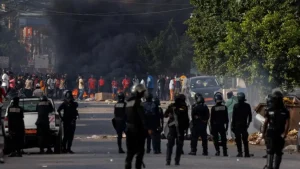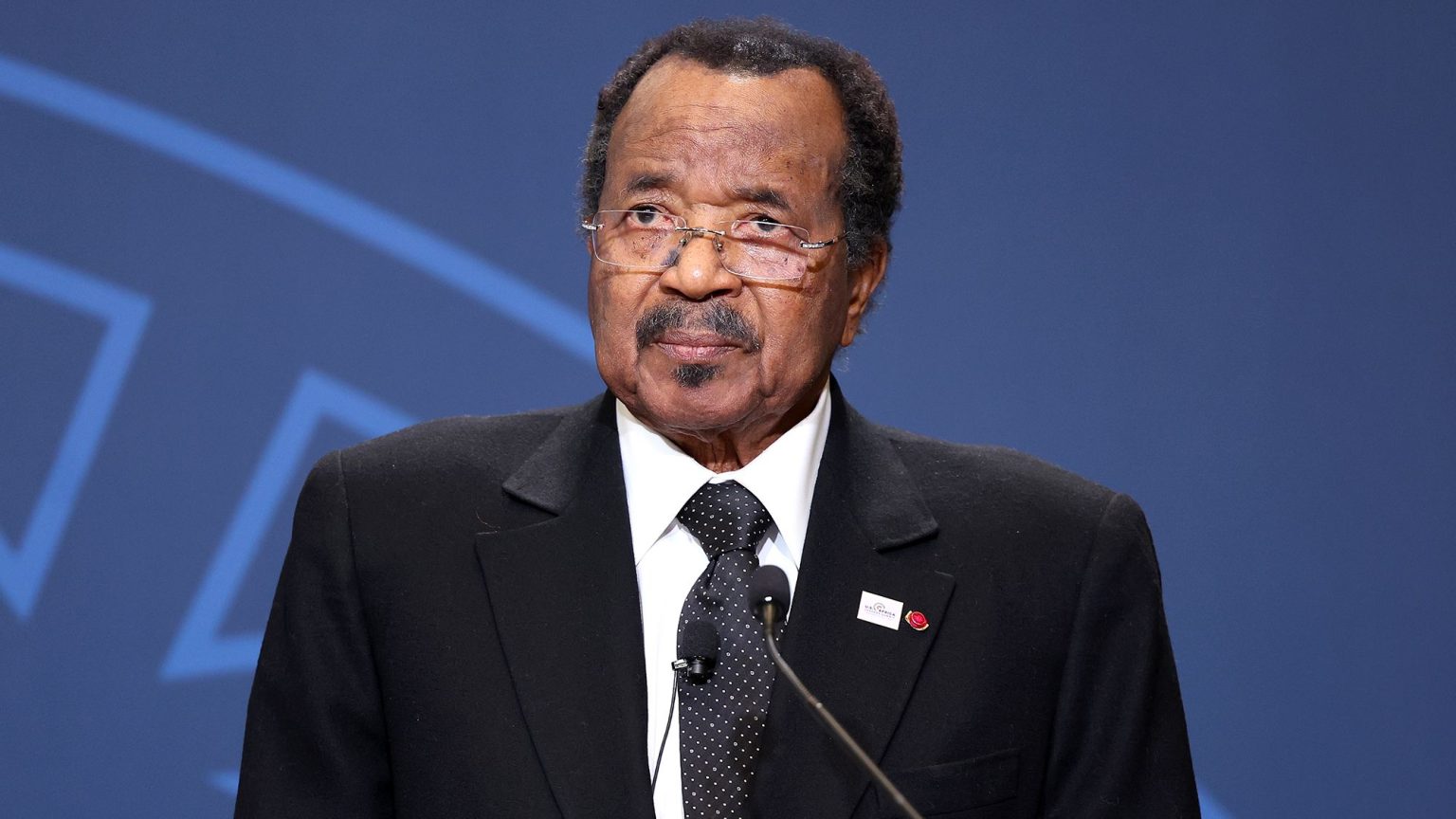Biya’s disputed victory deepens fears over Africa’s aging leadership, corruption, and democratic decline.
Cameroon’s 92-year-old President Paul Biya, the world’s oldest head of state, has won a controversial eighth term in office, extending his rule beyond four decades in a fiercely disputed election that has ignited deadly protests and renewed questions about Africa’s aging strongmen.
The Constitutional Council announced that Biya captured 53.7 percent of the vote, defeating his closest challenger, former ally-turned-opponent Issa Tchiroma Bakary, who received 35.2 percent. Ten candidates contested the 12 October poll, but the outcome has been rejected by much of the opposition, which alleges massive vote rigging, intimidation, and ballot-stuffing.
Even before results were declared, Bakary proclaimed himself the “legitimate president,” insisting he had secured about 55 percent of ballots based on tallies gathered by his campaign observers. The ruling Cameroon People’s Democratic Movement (CPDM) dismissed his declaration as “irresponsible and illegal,” accusing the opposition of trying to sow chaos.

Violence and Fear in the Streets
Tension turned violent over the weekend as hundreds of Bakary’s supporters defied protest bans in several cities, clashing with security forces. At least four people were killed in the commercial hub of Douala, where demonstrators hurled stones and set tyres alight before police opened fire.
Regional governor Samuel Dieudonné Diboua confirmed the deaths, saying police posts had come under attack. “Security forces defended themselves against premeditated acts of violence,” he told reporters, promising investigations but warning of stern action against “instigators of disorder.”
In Garoua, Bakary’s northern stronghold, witnesses reported gunfire near the opposition leader’s residence as supporters gathered outside. In a Facebook post, Bakary alleged that “snipers were firing at point-blank range at civilians.” Authorities have not commented on the claim, and independent verification remains difficult.
The unrest has paralyzed daily life in Yaoundé, where shops, schools, and government offices stayed shut amid fears of more violence. “We are at the beginning of another nightmare,” said Amungwa Nicodemus, a civil servant. “The economy is collapsing, corruption is everywhere, and our leaders act like nothing is wrong.”
A Nation Divided
The protests reflect deep frustration over economic stagnation and political fatigue in the oil-producing nation of 28 million people. Although Biya’s government celebrates his victory as a triumph of “greatness and hope,” many Cameroonians see it as evidence of an entrenched elite unwilling to relinquish power.
Voter turnout stood at 58 percent, but observers say participation was suppressed by fear and apathy. At least ten petitions alleging fraud were filed with the Constitutional Council; all were dismissed for “insufficient evidence.” Critics note that every judge on the council was appointed by Biya himself.
For residents like Vivian Muma in Bamenda, the mood after the results was chilling. “What struck me most was the silence, a graveyard silence,” she said. “The people decided one thing, but those in power decided another.”
Paul Biya history
Born in 1933, Biya first assumed office in 1982, taking over from Cameroon’s founding president, Ahmadou Ahidjo. His rule, now stretching 43 years, makes him one of the world’s longest-serving leaders.
Often dubbed “the absentee president,” Biya is rarely seen in public and spends extended periods abroad, particularly in luxury Swiss hotels. These absences, coupled with his age, have long fuelled rumours about his health and capacity to govern.
While his supporters credit him with expanding universities and resolving the Bakassi Peninsula dispute with Nigeria, critics argue his leadership has stifled innovation and accountability. Unemployment among under-35s hovers near 40 percent, infrastructure is crumbling, and an armed separatist insurgency in the English-speaking west continues to claim lives nearly a decade after it began.
Read Also:
Press Freedom Concerns Emerge After Ban on Biya Health Coverage
Cameroon’s opposition leader declares victory over 92-year old president
President Biya alive, active, Cameroonian Authorities insist
“Cameroon is caught between a president who refuses to leave and a generation that cannot move forward,” said a political analyst in Douala who requested anonymity for safety reasons. “It’s a tragedy repeated across much of Africa.”
International reactions have been cautious but concerned. The International Crisis Group warned that Biya’s “notably shaky mandate” could fuel instability if the grievances of opposition supporters are ignored.
“Many Cameroonians simply don’t believe he won,” said Murithi Mutiga, the group’s Africa Program Director. “Biya must urgently begin a national dialogue to prevent further escalation.”
Analysts see parallels with other African nations led by aging rulers, from Yoweri Museveni in Uganda to Teodoro Obiang Nguema in Equatorial Guinea. where decades of unbroken leadership have bred corruption, inequality, and youth disillusionment.
Biya’s victory underscores what critics call Africa’s leadership crisis, a cycle of old men clinging to power while economies stagnate and democratic institutions weaken. “Power without progress has become our curse,” lamented Nicodemus. “The people get older, poorer, and more hopeless, while leaders get richer.”
For now, the streets of Douala and Yaoundé remain tense but subdued. The government has deployed extra troops and restricted gatherings. Biya has yet to address the nation, deepening uncertainty about his plans for the next seven years.



